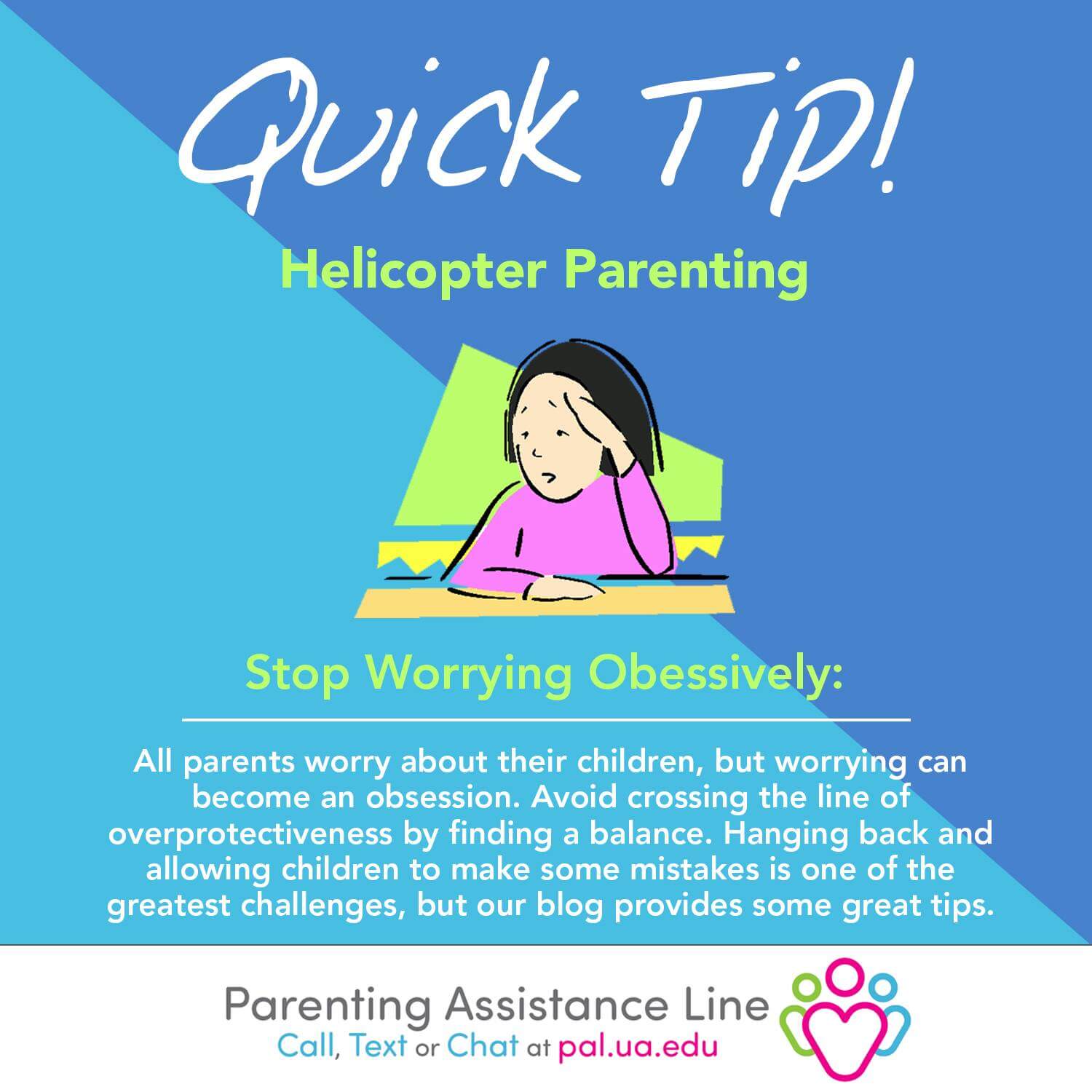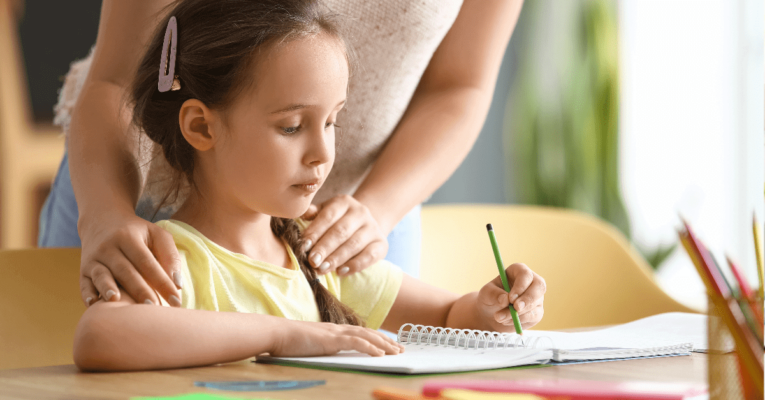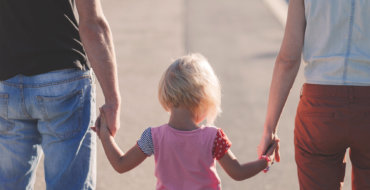The style of overprotective and over involved parenting is known as “helicopter parenting.” It happens when parents “cross the line” from expressing a healthy interest and involvement in their children’s lives to hovering. Of course, protecting and helping one’s child are normal parental instincts.
As young people mature, though, other parenting skills are necessary, such as helping children learn to make their own decisions and face the consequences of their actions. A healthy balance is the key to successful parenting.
Examples of helicopter parenting:
- Parent doesn’t allow child to do for himself what he is capable of doing, such as dressing himself, feeding himself, doing his own homework, and keeping up with hygiene. This fails to instill them with a sense of independence and a can-do attitude.
- Interferes too often during conflict situations. Children are going to experience conflict with one another. Unless there is serious bullying going on, it is best if parents try and allow the children to work out their own solutions. Giving suggestions and guidance is fine, but the learning of negotiation and problem solving skills are vital to maturity.
- Worrying becomes obsessive. All parents worry about their children. This type of worrying moves to the point of constantly thinking the child is in perpetual danger.
- Parent feels responsible for filling up the child’s time with activities and fails to allow them free time to play and explore on their own.
- Inability to maintain parental boundaries. We find ourselves doing things for our children out of OUR own needs and not because of theirs.
- Parenting in a way that is not age-appropriate. Your greatest responsibility to your adolescent children is to help them develop the skills to make it on their own. As children move into adulthood, you can now become much less of a micromanager and disciplinarian, and more of a role model.
Finding a balance:
- Hanging back and allowing children to make mistakes is one of the greatest challenges of parenting. Each time we step in and do for our children what they can do for themselves, we rob them of an opportunity for growth.
- Part of being a parent is minimizing risk for our children. Granted, it is impossible to eliminate all risk, but it is in the small daily risks- the taller slide, the sleep over etc. that growth takes place. In this gray area of just beyond the comfortable is where resilience is born.
- Realize that 90% of what we worry about never comes to pass. When you feel yourself becoming anxious, step back and take a deep breath. Call a friend who can help you to settle down or call PAL at 1-866-962-3030.
- Rather than micromanage, parents need to help develop decision- making skills. The parent-as-coach provides structure, shares strategies for staying organized, gives advice, and models behavior such as how to negotiate with an authority figure without becoming confrontational.
- Maintain healthy parental boundaries. When we do things for our children out of our own needs rather than theirs, it forces them to bypass the most critical task of childhood: to develop a strong sense of self.







